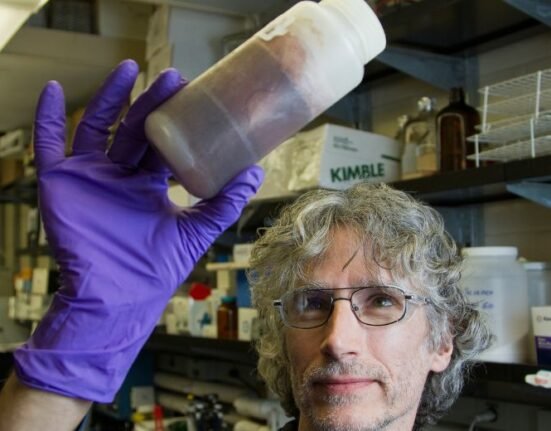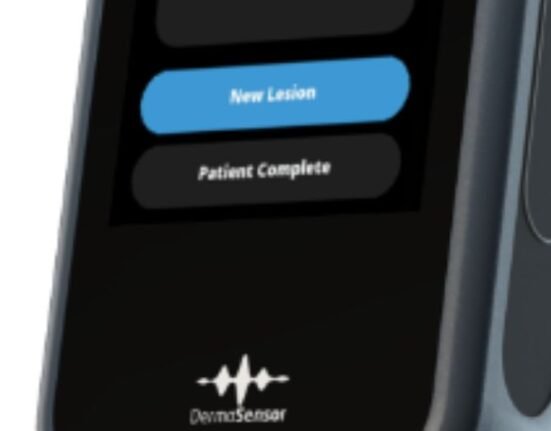HQ Team
April 17, 2023: Researchers at the Harvard Medical School and Taiwan’s National Change Kung University have invented a new artificial intelligence tool to accurately predict survival rates during and after colorectal cancer.
The tumor’s genomic profile is gleaned using visual markers on pathology images and predicts the tumor’s behavior, progression, and treatment options, according to a statement from Harvard Medical School.
The AI model could aid clinical decision-making and perform genomic profiling of tumor tissues in places with limited resources.
Colorectal cancer is the second deadliest cancer globally.
By looking at images of tumor samples — microscopic depictions of cancer cells — the new tool accurately predicts how aggressive a colorectal tumor is, how likely the patient is to survive with and without disease recurrence, and the optimal therapy for them.
Navigate cancer
Clinicians and patients can navigate the disease, which often behaves differently even among people with similar disease profiles who receive the same treatment — and could ultimately spare some of the one million lives that colorectal cancer claims yearly. A report on the team’s work was published on April 13 in Nature Communications.
The researchers say that the tool is meant to enhance, not replace, human expertise. The MOMA tool (for Multi-omics Multi-cohort Assessment) is free for researchers and clinicians.
“Our model performs tasks that human pathologists cannot do based on image viewing alone,” said study co-senior author Kun-Hsing Yu. You led an international team of pathologists, oncologists, biomedical informaticians, and computer scientists.
“What we anticipate is not a replacement of human pathology expertise, but the augmentation of what human pathologists can do,” Yu said. “We fully expect that this approach will augment the current clinical practice of cancer management.”
The researchers stated that any individual patient’s prognosis depends on multiple factors.
The new model could guide clinicians to follow up more closely, consider more aggressive treatments, or recommend clinical trials testing experimental therapies if their patients have worse predicted prognoses based on the tool’s assessment.
‘Indiscernible to human eye’
“The tool could be particularly useful in resource-limited areas, both in this country and around the world where advanced pathology and tumor genetic sequencing may not be readily available,” the researchers wrote.
The AI tool goes beyond many current ones, primarily performing tasks replicating or optimizing human expertise. The new tool, by comparison, detects and interprets visual patterns on microscopy images that are indiscernible to the human eye.
The artificial intelligence model was trained on information obtained from nearly 2,000 patients with colorectal cancer from diverse national patient cohorts that include more than 450,000 participants.
During training, the researchers fed the model information about the patient’s age, sex, cancer stage, and outcomes. They also gave it information about the tumors’ genomic, epigenetic, protein, and metabolic profiles.
The researchers showed the AI model pathology images of tumor samples. They asked it to look for visual markers related to tumor types, genetic mutations, epigenetic alterations, disease progression, and patient survival.
They tested how the model might perform in “the real world” by feeding it a set of images it had not seen before of tumor samples from different patients. They compared its performance with patient outcomes and other available clinical information.
Accurate survival prediction
The model accurately predicted the patients’ overall survival following diagnosis and how many of those years would be cancer-free.
The tool also accurately predicted how an individual patient might respond to different therapies based on whether the patient’s tumor harbored specific genetic mutations that rendered cancer more or less prone to progression or spread.
In both of those areas, the tool outperformed human pathologists as well as current AI models.
“It is critical that with any AI model, we continuously monitor its behavior and performance because we may see shifts in the distributions of disease burden or new environmental toxins that contribute to cancer development,” Yu said. “It’s important to augment the model with new and more data as they come along so that its performance never lags.”
Before deploying the model for use in clinics and hospitals, the researchers said it should be tested in a prospective, randomized trial that assesses the tool’s performance in actual patients over time after initial diagnosis.
The model has transparent reasoning, which is its strength. The model accurately pinpointed image characteristics related to differences in survival.
If a clinician using the model asks why it made a prediction, the tool could explain its reasoning and the variables used.








